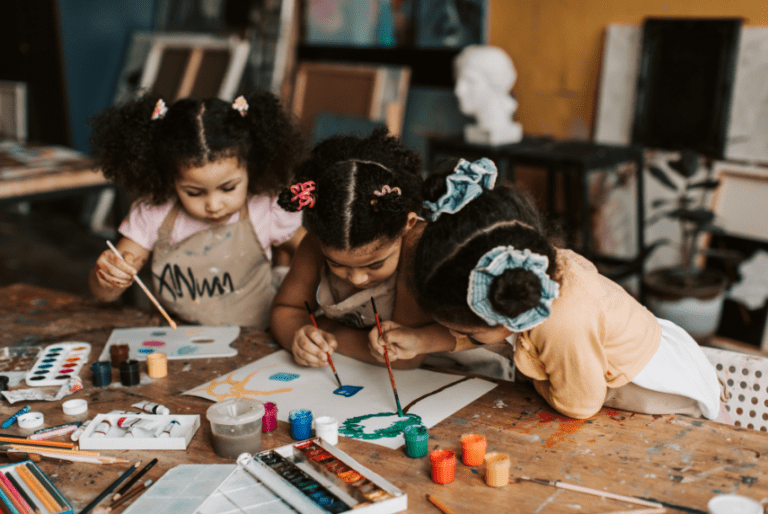Today, we continue on our journey through Social and Emotional Learning (SEL), exploring simple and fun practices that can be incorporated into your family’s daily routines. These practices can help you and your children connect and understand one another on a deeper level while also better understanding yourselves. Our goal is to provide you with the confidence and tools you need to create an environment that fosters emotional growth and resilience for yourself and your family. Let’s jump right in!
Morning Mindfulness Routine
Our lives can feel as if they are mundane and overwhelming if we do not stop and find time to recenter ourselves. Without a sense of connection between the mind and body, both caregivers and children can lose track of their feelings and spiral downward in their behavior. However, it doesn’t have to be this way. Imagine starting the day with a moment of mindfulness. Gather your family for a few moments of quiet reflection, deep breathing, or even a short gratitude exercise. This practice sets a positive tone for the day, allowing everyone the opportunity to tune into their emotions and prepare to tackle new challenges from a fresh perspective. Mindfulness sessions can consist of a brief activity lasting as little as 1 to 5 minutes. There is an abundance of quality guided meditations on YouTube for all age ranges. With a short bit of browsing, you are certain to find mindfulness content that will benefit everyone in your family!
Create A Safe Space
Designate a cozy corner in your home as the “Safe Space.” Fill it with books, games, and resources that revolve around emotions, empathy, and relationship-building. Make it a go-to spot for family members to explore and discuss their feelings. This corner serves as a tangible reminder of the importance of emotional well-being. If you or your child are feeling overwhelmed with your emotions, this can be a spot where everyone is encouraged to dig into those emotions and process them in a healthy way. Feelings and emotions can be hard for young children, and they may not be able to express themselves in “appropriate” ways. Giving them the power to take control and acknowledge their autonomy while still being available for emotional support helps them to become more independent and self-aware.
Feelings Art
Encourage your children to express their emotions through art. Provide them with art supplies and let them create a feelings-inspired masterpiece. This creative outlet not only helps them understand and manage their emotions but also offers a unique way to share their inner world with you. Sometimes, kids don’t have the words to express how they feel or they may not even be aware of what exactly is bothering them. Art can be a mode of release for children, allowing them the opportunity to naturally express what they are experiencing. There are guided activities available online that you can intentionally do with your child through prompts or SEL-focused topics, depending on their needs.
As you begin the process of weaving SEL practices into your family’s daily life, remember that consistency is key. The more your child sees emotional awareness and empathy as integral parts of everyday routines, the more these skills will become second nature to them. As a parent, you have the opportunity to model SEL practices for your children as you move throughout your day. Together, you can grow into a socially connected, self-aware, and emotionally intelligent family unit.
Stay tuned for the final chapter of our SEL series. We will be exploring some of the challenges you may experience while beginning to incorporate SEL into your daily life. We’ll discuss how to navigate resistance, time constraints, and other hurdles on this unpredictable but rewarding journey. For now, we offer some links to beneficial resources regarding SEL integration into the home. We hope you will experiment and find what works best for your family!
Resources for Parents:
- CASEL – Core Competencies of SEL
- Mindful Schools – Morning Mindfulness Practice
- Parenting Science – Emotion Coaching at the Dinner Table
- Greater Good Magazine – How to Create an Emotionally Intelligent Classroom
- Parenting Science – Empathy Activities for Kids
- The Imagination Tree – Art and Emotional Development

